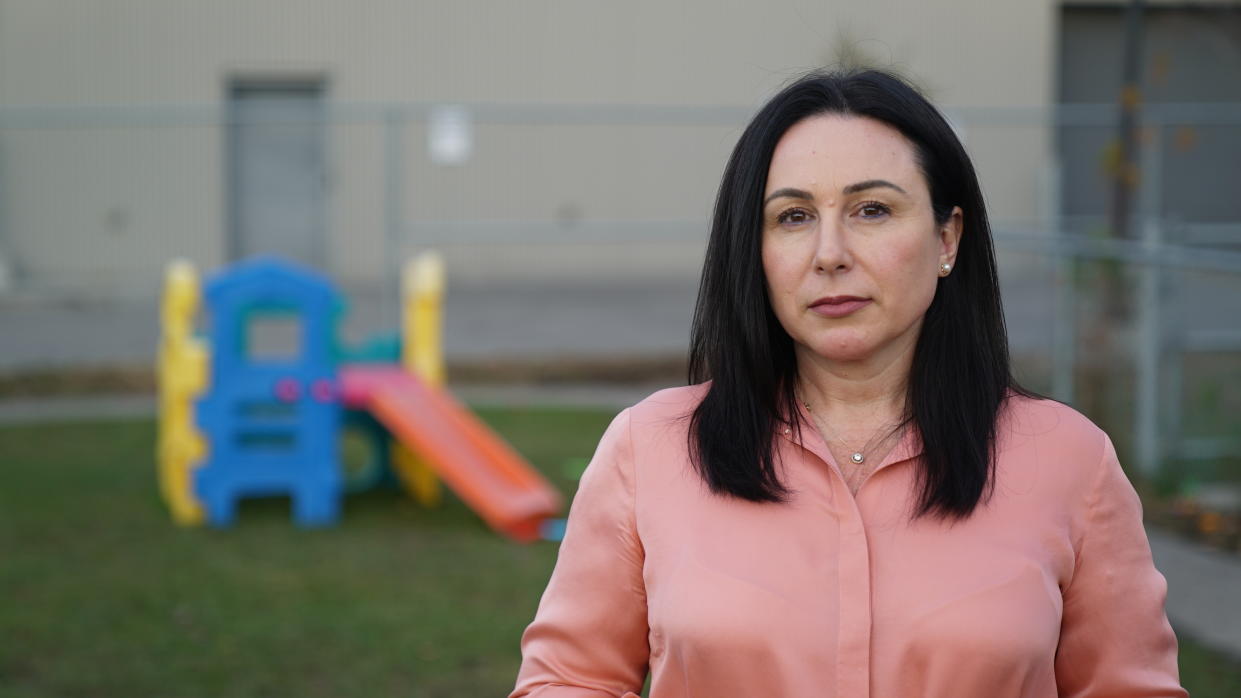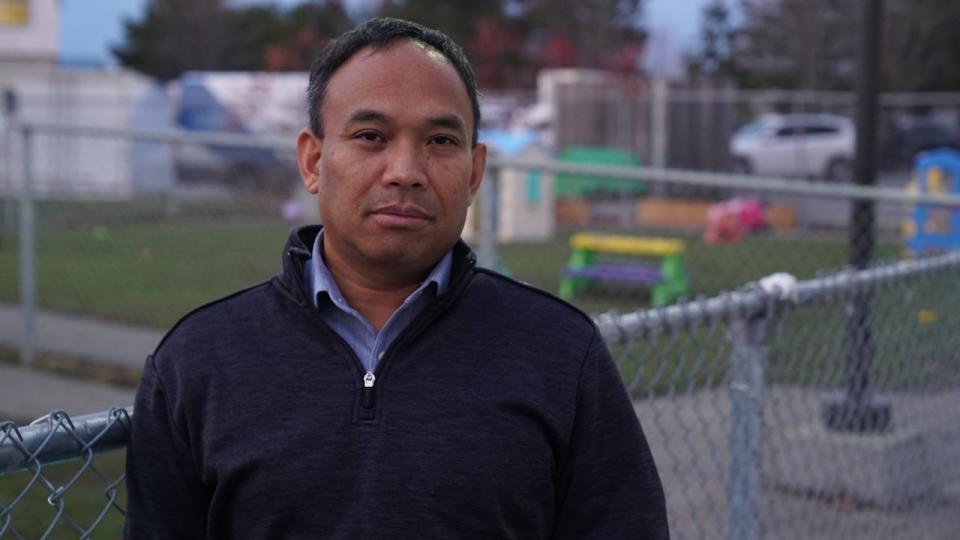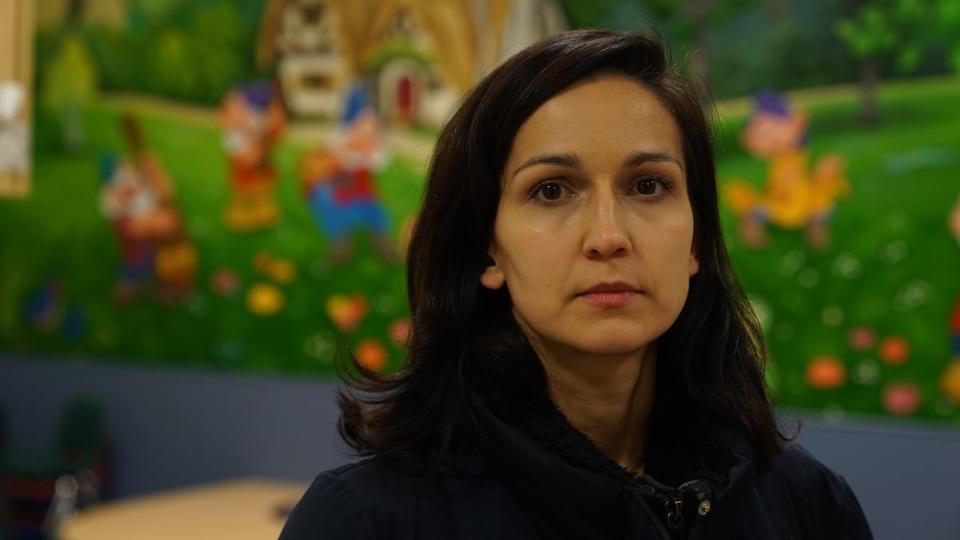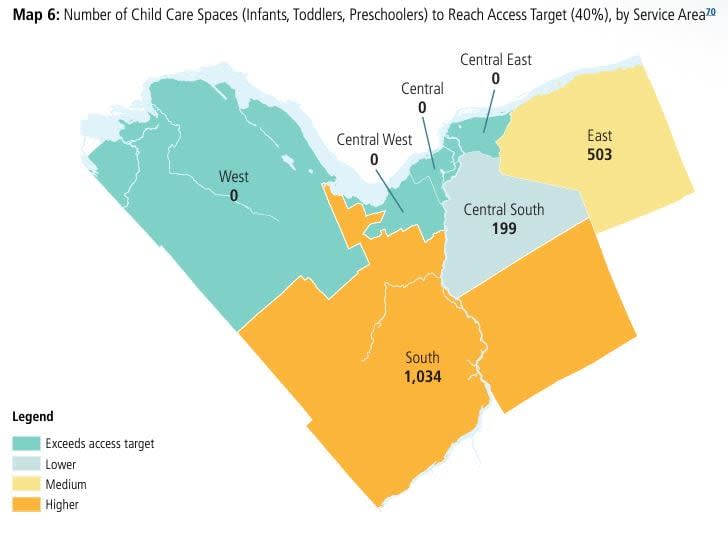Licensed daycare operator blames slow rollout for lack of subsidized spots

An Orléans daycare provider says she's worried the rollout of the federal subsidy is not improving access to affordable daycare in her community, in part, because of its slow expansion.
Happy Zone daycare opened with 72 licensed child-care spaces in June. Then in October, the children's services department at the City of Ottawa informed them they wouldn't receive funding from the Canada-Wide Early Learning and Child Care (CWELCC) system, which can cut some fees in half.
Enkelejda Kokalari, owner and director of the centre located in the Chatelaine Village neighbourhood, said she was given little explanation as to why her centre wasn't chosen. She said it's in an area the city identified for not meeting child-care access targets.
"There is huge discrepancy between the need to increase the access in this area and the available funding," she said.
While Kokalari said Happy Zone has a wait-list of more than 400 children — only 35 spaces are currently filled. There's a whole classroom sitting unused with empty cubbies outside.
"If I told them that we have the subsidy, they would all come and we would be full," she said. "Parents here in Orléans, they don't have the ability to pay the full rate."
Kokalari said some parents have left the daycare to leave for subsidized spots, while others say they can't afford her centre.

Robert Butler has a daughter at Happy Zone but says he'd likely take her out of the centre if a subsidized space opened up. (Matthew Kupfer/CBC)
'Like a 2nd mortgage payment'
Robert Butler, who has a daughter at Happy Zone, compared searching for a daycare spot in Orléans to the "Hunger Games" series. He hoped the new child-care agreement would decrease his family's expenses.
"It's almost like having a second mortgage payment," he said, holding out hope the daycare can obtain the subsidy.
"It looks like a lot of very central locations got daycare [subsidies] and maybe not ... ones on the outskirts like south Ottawa or Orléans."
Daria Demina has a two-and-half-year-old daughter who attends Happy Zone. She only attends part time because her family can't afford the full fee, and she's calling around looking for a subsidized spot.
"As much as we like the daycare, if you cannot afford it, you cannot afford it," she said. "I'm looking for a full-time job and I need full-time care."

Daria Demina says she is looking for a full-time job and needs full-time, subsidized care, but can't afford it. (Matthew Kupfer/CBC)
Ninety-four percent of existing licensed child-care centres in Ottawa opted into the CWELCC by November 2022 — cutting costs to parents in half for 21,000 spaces.
There is also a target of 40 per cent of children in a given area having access to child care.
Kokalari said established daycares have a "huge competitive advantage" on newer daycares like hers when it comes to getting the subsidy.
"Even if we lower the rate, which we cannot because we have to pay full rent, we have to pay the staff, still we cannot compete with the other daycares," she said.
The federal-provincial agreement includes funding to add 86,000 spaces across the province by 2026. The city said it succeeded in getting the province to increase the Ottawa portion to 2,900 spaces.

A map from the City of Ottawa's Child Care and Early Years Services System Plan, 2019-2023, identifies the number of spaces needed to meet the target of 40 per cent of children in a given area having access to service. That report precedes the introduction of the Canada-Wide Early Learning Child Care program. (City of Ottawa)
Some parents 'doubly penalized'
Morna Ballantyne, executive director of advocacy group Child Care Now, said fee reductions have helped families save money and return to the workforce. The government funding required to expand the program is insufficient, though, and contributes to inequities for people who can't find a space, she said.
"They are, in effect, doubly penalized," Ballantyne said. "They're penalized in that they can't get access to a space, but also they don't have access to the much lower parent fees that are being charged now by licensed child-care facilities relative to non-licensed facilities."
Ballantyne said some of the unequal distribution of spaces is a legacy of the market-based system that preceded the CWELCC and building a new system takes time.
Her organization wants more funding from the federal and provincial governments to encourage expansion of the new system, she added.
City advocates for more spaces
The city isn't able to say how many providers are in the same situation as Happy Zone because it's still notifying applicants for this year and next year. Once that process and related legal agreements are complete, the city will provide additional information on "the process and the outcomes."
In a statement, the head of children's services Jason Sabourin said the city received more submissions for new spaces than available funding.
Sabourin said in a statement the department knows the process "will result in disappointment for families and those providers who were not selected."
"At this time, CWELCC funding is not universal, with provincial targets set to fund spaces for one in every three children. Based on the demand expressed by the sector for growth, our team will continue to advocate to the province for more CWELCC-funded spaces," he said.
He said unsuccessful submissions are being kept on file.
The city applied an equity and inclusion lens when it chose which spaces would be eligible for service, Sabourin added, as well as following Ontario's Access and Inclusion Framework, which places priority on lower-income neighbourhoods and priority populations — including services for francophone, rural and Indigenous communities.


